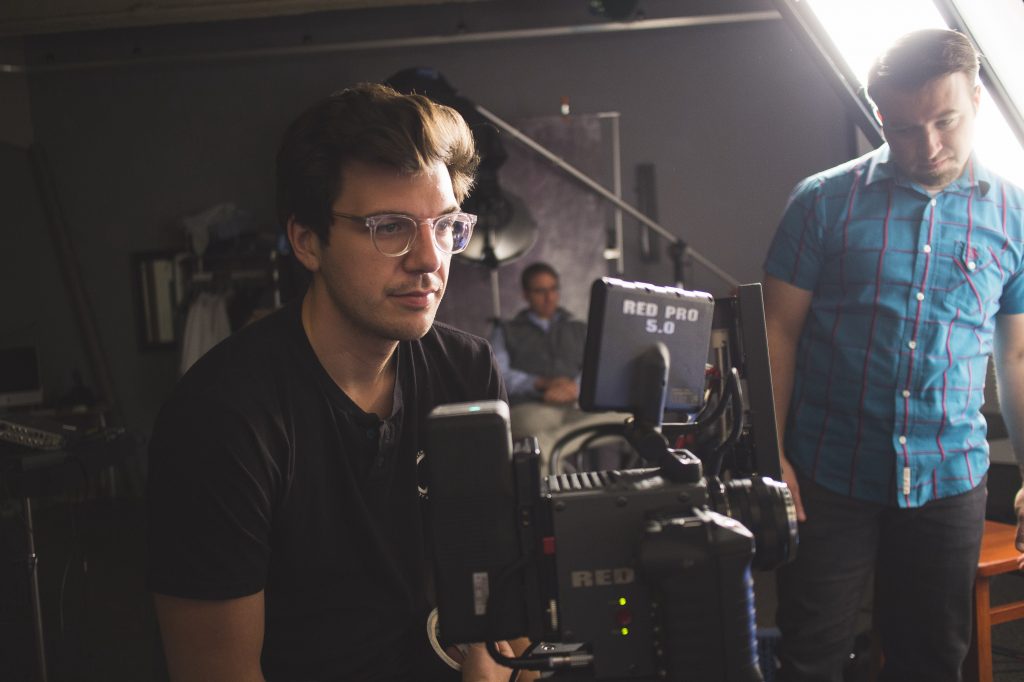Before you go on feeling like a class-A celebrity all because you got yourself a meaty role, be informed that bad film set etiquette can get you fired or blacklisted. Most new, less experienced enthusiasts have this uncontrollable desire to show people how good they are, even when no one’s asking. While your image hasn’t been as tainted yet, know that nothing speaks more about your professionalism than the way you conduct yourself on set. Knowing how to conduct yourself in the job that is assigned to you is of the utmost importance in being recognized as a working professional. Making unnecessary comments and suggestions for someone else’s job actually hurts your career more than it does you good.
 medium.com
medium.comBefore this gets overwhelming, here’s how you should conduct yourself on set. It’s actually pretty simple.
Film Set Etiquette: Reviewing Good Manners and Right Conduct
The running of a professional motion picture set is a high-pressure, high-stakes endeavor. If you don’t know the order of rules on set, you risk reducing your chances at future opportunities or becoming a catalyst that destroys a film production. Here are basic manners to observe.
Other people’s jobs are none of your business.
Imagine the first assistant camera telling the director that he didn’t think the actor’s performance was right. Or the gaffer commenting on the way a particular shot is framed. Or an actor complaining about the assistant director’s job.
News flash, film sets are supposedly a unified organism where every worker is a vital body organ. Such comments will only irritate, sometimes insult, the recipients and break common understanding inside of the crew. Remember that no matter what you do, you are important and your work is important; so is theirs. They were hired for the job and with good reason; so were you. You know what your part of the job is, so do yours. You’re an actor; your job is to act, familiarize your character, and listen to the director. Don’t direct yourself. Don’t interrupt the director. Don’t grumble at the assistant director. Don’t complain about the director of photography’s footage. Worse, don’t ask the director to cut a take for you!
Similarly, don’t touch or move stuff that’s not yours. The last thing you want to do is to be accused of breaking expensive equipment. Stay in your department, and believe that everyone knows what they are in charge of doing. If someone looks like they need help, ask.
Don’t be late.
The whole crew cannot be waiting around for you to show up. Time is money. For every scene you drag down because of your tardiness, the producers, first assistant director, and unit production manager exert unnecessary effort in their job just to compensate for the time you wasted. Be mindful of the effects of your actions and comply with your responsibilities. Be organized and punctual. If you always end up being late, you could set the production behind and cost people jobs. On your call sheet, you will see a breakfast time and a call time. You might not want breakfast, but make sure you inform the first assistant director about this and be at least 15 minutes early to start work every day.
“Quiet on set!”
Once the director says “action,” no sound can be present on set except for the actors doing their job. And you need to remember this rule! While smartphones are a huge and important piece of the toolkit for many crew members on set, they can’t let an unexpected ringtone interrupt the scene. You’re no exception. Turn your phone’s volume off, and ensure that even the vibration isn’t heard by the people around you. Besides your phone, keep a handle on your own noise level in general, even if you’re throwing lines with your coactor. Most stars don’t like talkative staff, and most assistant directors don’t like talkative actors.
Ask permission when leaving.
When in need of a washroom break, be sure to tell your superior! In film school, you might have been told to always tell the assistant director, but sometimes on larger sets, the AD has so much to deal with that they really don’t need to know which actor is pooping. You are fine as long as someone knows and someone is around to cover you.
Do not leave the set or location until you have been told officially by an assistant director that you have been “wrapped” (finished for the day). Remember that disappearing from your workplace is generally bad etiquette in any job. Before you leave, make sure you have signed out with a member of the assistant director team and you have returned any costume or props that have been provided to you.
Treat it like any other job.
Sure, film life is fun and creative. But you’re also being paid to do your work and everyone is interdependent on one another’s jobs. Don’t bring your outside issues into the workplace. Remember to be respectful to authority, and know your place on set. Don’t take professional admonishment personally. Be mature, carry on, and do your job well.